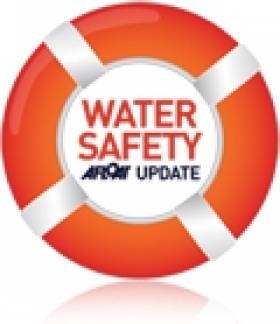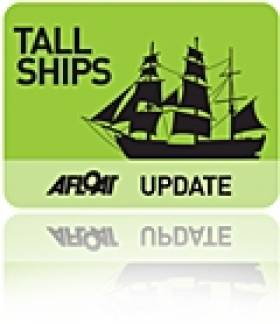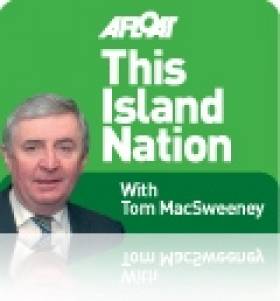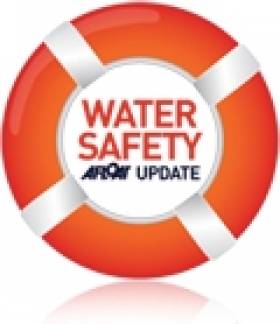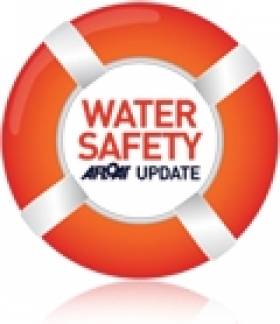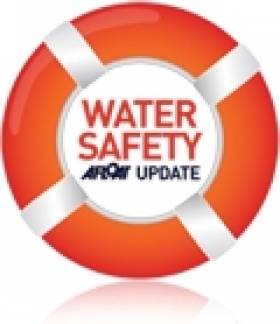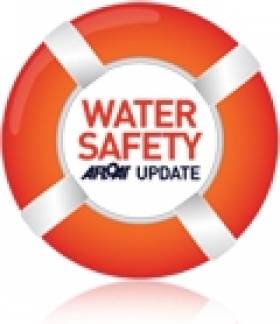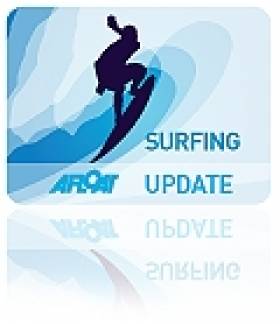Displaying items by tag: water safety
Marine Notice on Legal Requirements for Personal Flotation Devices
#WATER SAFETY - The latest Marine Notice from the Department of Transport, Tourism and Sport (DTTAS) addresses the legal requirements for all recreational craft owners, masters and users in relation to the wearing and carrying of personal flotation devices (PFDs).
The notice discusses the different types of PFDs - lifejackets and buoyancy aids - and their performance standards, as well as highlighting the importance of their use, proper care and servicing for safe activities on the water.
The law makes clear that there must be suitable PFDs for everyone on board any pleasure craft, and that PFDs must be worn by anyone the deck of any craft or on board any open craft that is under seven metres in lengh - or for people under the age of 16, any craft regardless of length.
Also detailed are recommendations for the storage of PFDs, and guidance for their correct usage.
The use of lifejackets and buoyancy aids is particularly important in light of the recent Marine Casualty Investigation Board (MCIB) recommendations on a number of incidents where their availability could have saved lives.
Full details are included in Marine Notice No 45 of 2012, a PDF of which is available to read or download HERE.
Teen Rescued from Docklands During Tall Ships Festival Prep
#TALL SHIPS - A 15-year-old boy was rescued from the water at Dublin's Grand Canal Dock yesterday after getting into difficulty while swimming.
According to RTÉ News, the teenager from Blanchardstown was swimming with a number of friends at Hanover Quay amid preparations for the Tall Ships Races Festival when he went missing around lunchtime yesterday.
Fire officers reportedly retrieved the boy from the water and gave him CPR on the quayside before he was transferred to St Vincent's Hospital in Merrion.
The Irish Times reports that the teen was in the area to volunteer with the Kings of Concrete urban sports display group as part of the Tall Ships Races events.
Organisers later confirmed that the boy was not preparing for his volunteer work at the time of the incident, which underlines the importance of water safety for all volunteers and visitors at the Docklands festival starting tomorrow.
Safety is also paramount aboard the tall ships fleet as they make their way to the capital, with damage inflicted on nearly all the more than 40 vessels in stormy conditions in the Bay of Biscay, according to the Irish Independent.
Ecuadorian naval ship the Guayas suffered eight ripped sails in the storm, but the worst damage was sustained by the Polish schooner Captain Borchardt, which arrived in Dublin with a broken mast.
However, master of the skip Janus Zbierajewski jokingly described the experience as "absolutely perfect weather".
The bad weather was enough to force at least once ship to abandon the final race leg, with Sail Training Association flagship STS Pogoria arriving in Dublin Port some days ahead of schedule.
Valentia Radio, Coastguard Equipment & Poor Olympic Coverage
Another attempt is being made by Coast Guard management in Dublin to close the coastal radio stations at Valentia and Malin Head and centralise operations in Dublin. That, the poor quality of television coverage of sailing at the Olympics, the future of the State's national fishing board and the launch of the national maritime plan, are amongst my topics on this week's THIS ISLAND NATION.
RESPECT FOR VALENTIA RADIO
Sailing the West Cork coastline last week Valentia Radio was a welcome companion. I listened to their regular sea area weather forecasts on VHF. They also provide the added service of message 'traffic' for vessels at sea, and advisory warnings about hazards, amongst their service. In addition to VHF Medium Frequency transmission covers a wider maritime area. The voices of the station staff become a familiar and welcome part of one's voyaging. You know they are there, a source of help and support if needed. During the week I heard them involved in search and rescue work, using their local knowledge.
On the North-Western coastline they are partnered by Malin Head Radio, providing a similar service. The staff of both have that vital component not available anywhere else, of local knowledge of their sea areas. The central base is in Dublin where staff can concentrate on the East Coast.
The service works well but high-level Coast Guard officials have been attempting for several years to centralise operations in Dublin and close Valentia and Malin. Previous attempts to do this were defeated when Coast Guard Management proposals were shown not to be in the best public interest.
I feel a sense of anger and annoyance that another attempt is being made to target the stations, emanating from the Department of Transport where a reliable source has given me details of a study on which Minister Leo Varadkar has told officials to prepare proposals which will propose what are termed 'hard decisions' before the Cabinet in October. It appears to me that Coast Guard management want one station, in Dublin, to control all output and, I am told, have repeatedly sought the adjustment of consultant reports to achieve this end. It could be done technically, but would exclude the vital aspect of local sea area knowledge which, in both Valentia and Malin has several times saved lives. It is an approach to safety which is not acceptable, with which there should be no compromise. When then Minister Noel Dempsey attempted to close the helicopter base at Waterford I raised the question – what is the value of one life? I do so again now.
NEW STATION EQUIPMENT
New equipment assigned to upgrade Valentia after the last controversy in 2009 is only due to be installed this month or next, a wait of three years!
New equipment is also being installed at present in Malin. One of the proposals by Coast Guard officials is that if a second station is needed to back-up and support the Dublin central base in case of any fault developing there and threatening a blacking-out coastal communications it should be in Blanchardstown, which just happens to be the Minister's constituency!
A new engine room, new boiler room, new security system, new generator, new operations room, an upgraded transmitter room and a helipad are due for installation in Valentia, so where is the justification for now considering closure – and at a time when other general Coast Guard stations, not radio stations, are and have been built around the country at considerable expense? Where is the logic in this?
THIRD LARGEST COASTAL STATION
Valentia is the third largest coastal marine station in Ireland and the UK. It covers the most turbulent seas in Western Europe and the roughest inland terrain in the country, where it also helps with search and rescue and deals with two-thirds of all 'Mayday' emergency calls around the coast of Ireland.
The station employs 16 people.
At present the Departmental-Coast Guard budget is putting money into a move away from the Eircom fixed line network to an independent contracted microwave network, configured to enable the coast to be covered effectively for marine radio, search and rescue, assistance information by three stations. If this was to be changed to any other configuration, if a one-centre option is chosen in Dublin, there would be an extra cost of around €10m. I have been told. Adding the €5m. already spent on the government decision to improve Valentia and Malin, I wonder what the point of all of this is? Why is Coast Guard management opposed to the costal-based marine radio stations, at the same time as building other Coast Guard bases around the coast. There seems a lack of logic in this approach.
WHAT IS THE VALUE OF A LIFE ?
In safety-at-sea terms the present maritime coastal radio station configuration of Valentia and Malin will always be required, as long-range Medium Frequency communications will stay there, used in addition to VHF to cover wider areas of reception. So even if a one-centre manned set up was followed, with an unmanned centre duplicate in case of Dublin breakdown, there would be two additional unmanned sites at Valentia and Malin to be maintained for long-range communications with attendant costs.
Dublin operates three 8-hour watches while Malin and Valentia have operated a 12-hour shift pattern with the effective saving of 2 staff positions without the requirement for overtime.
Coast Guard officials and the Minister for Transport should back away from proposals to do anything which would reduce the effectiveness of safety at sea.
They would be well advised to do so.
THE FUTURE OF BORD IASCAIGH MHARA
The Chief Executive of the national fisheries board, Bord Iascaigh Mhara, has told me that: "If you look at where the economy is at now, the need for a standalone agency dealing with seafood development makes sense more than at any time in our economic development. The case is stronger today than it has been for many a long time."
Jason Whooley was speaking to me about suggestions that BIM should be abolished and its functions absorbed elsewhere:
"I hope and would expect the review of BIM will come to the conclusion that it is vital to the seafood sector, to the fishing industry, to maintain BIM, but equally it is up to us as an organisation to constantly review ourselves and our services and deliver for the industry. People may see us as a State agency, cushioned from the wider economy and that an organisation needs a jolt. Perhaps that keeps us on our toes, because we are looking at ourselves constantly to improve our services, so I do think BIM has a strong future."
Closing BIM would, in my view, indicate disregard for the role of the marine sphere in government. The opinions of economic consultants are too easily accepted without challenging the damage they could do to the nation's future.
NATIONAL MARINE PLAN
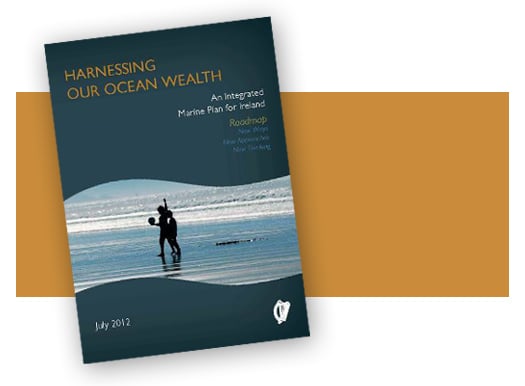
"For too long we have turned our backs on the sea. It's time now to look to our ocean as a national asset, to harness the opportunities for economic recovery. We need to treasure what we have and protect it for future generations. We also need to build on the potential of our ocean wealth and what it can give back to its people. 'Harnessing Our Ocean Wealth,' the title of this plan, puts a structure in place to make that happen".
That was the opinion expressed by Marine Minister Simon Coveney when he launched the national maritime development plan with the Taoiseach in Galway. It proposes that the value of Ireland's ocean wealth could be doubled to 2.4% of GDP and the turnover from our ocean economy be increased to more than €6.4bn by 2020.
It is a long-term outlook, but one to focus on, for seafood, fishing, marine tourism, shipping, oil and gas, renewable ocean energy and new applications for health, medicine and technology. It sets out goals to achieve a thriving maritime economy, healthy ecosystems and to increase the nation's engagement with the sea, focussing on the State creating the right conditions to promote investment and enable growth.
POOR OLYMPIC COVERAGE
I have had quite a few calls and Emails complaining about television coverage of sailing at the Olympics. It has been poor. TV coverage for the Games is provided by t Olympic Broadcast Services (OBS), an agency of the International Olympic Committee and prevents other broadcasters from covering the events. In sailing coverage has not been satisfactory and at times is done on a single camera which is not acceptable at this level of the sport. The IOC has treated sailing badly in television coverage. For a link to all the latest Irish Olympic sailing news click here.
• Email comments, opinions, information to: [email protected]
Follow more marine news and comment on Twitter: @TomMacSweeney
• And on Facebook – THIS ISLAND NATION
#WATER SAFETY - The Belfast Telegraph reports that an 11-year-old girl has died in an accident at the seaside near Portballintrae in Co Antrim.
The young girl, who has not yet been named, was taken to hospital in critical condition after getting into difficulties while body-boarding with her family at Bushfoot Strand yesterday afternoon.
Onlookers praised the efforts of the coastguard and bystanders in giving the youngster CPR before paramedics arrived.
However, a passer-by noted that the ambulance had some trouble in finding the access road to the beach - and added that the stretch is known by locals to be unsafe for bathing.
A spokesperson for the Belfast coastguard warned bathers to be wary of strong rip currents which are common on the north coast.
Teenager Drowns in Derry Reservoir Tragedy
#WATER SAFETY - Summer swimmers have been urged not to underestimate the coldness of the water after a teenager drowned in a Co Derry reservoir in the early hours of this morning.
BBC News reports that emergency crews were called to the scene at Creggan reservoir where a group of youths had been swimming.
The body of a 19-year-old man was recovered from the reservoir around 6.30am this morning. It's reported that his family were present at the scene.
The NI Fire Service also confirmed that they had to rescue another young man to had entered the water to try to rescue his friend.
Paddy Wilson from Foyle Search and Rescue said he believed the young people had been having a party at the reservoir, and the victim had tried to swim to a floating platform when tragedy struck.
The incident was similar to the death of 17-year-old Sean McNair from Donegal, who drowned after going into the water at Rathmullan Pier in July last year.
#SAFETY– Warmer weather has turned many waterways into a playground for aquatic sports and boating activities. Accidents can happen fast on water and there may not be time to reach for a lifejacket in an emergency therefore don't just carry a lifejacket - wear it; if it's not on you, it can't save your life. That's the pressing message of a Bank Holiday campaign from Irish Water Safety, which is urging people to make sure that their lifejackets are in good order for the summer season ahead.
Of great concern is the fact that parents continue to bring children boating without ensuring that all on board wear a lifejacket. Warmer weather is enticing many to enjoy leisure boating activities nationwide and as this is National Water Safety Awareness Week, Irish Water Safety is advising all boat users to study its safe boating alert so that safety comes before complacency when boating.
Irish Water Safety's Safe Boating Alert:
Check condition of boat and equipment, hull, engine, fuel, tools, torch.
Check the weather forecast for the area.
Check locally concerning dangerous currents, strong tides etc.
Do not drink alcohol while setting out or during your trip.
Carry an alternative means of propulsion e.g. sails and oars or motor and oars.
Carry a first aid kit on board and distress signals (at least two parachute distress rockets, two red hand flares).
Carry a fire extinguisher, a hand bailer or bucket with lanyard and an anchor with rope attached.
Carry marine radio or some means of communication with shore.
Do not overload the boat - this will make it unstable.
Do not set out unless accompanied by an experienced person.
Leave details of your planned trip with someone ashore - including departure and arrival times, description of boat, names of persons on board, etc.
Wear a Lifejacket or Personal Flotation Device at all times.
Keep an eye on the weather - seek shelter in good time.
In Marine Emergencies, call 999 or 112 and ask for Marine Rescue.
Lifejackets Checklist
Visually Check all lifejackets and buoyancy aids for the following deficiencies:
Ensure CO2 Cartridges have not been punctured and are secured firmly
Ensure all zips, buckles, fasteners and webbing straps are functioning correctly and adjusted to fit the user
Check that their lights, if fitted are operating correctly
Ensure that Automatic Inflation devices if fitted are fully serviced and in date
Check that the valve or lifejacket is not leaking by inflating the lifejacket overnight
Irish Tourist Drowns in Melbourne
#WATER SAFETY - A 27-year-old Irish tourist had died after drowning in Melbourne, Australia on Tuesday, the Sydney Morning Herald reports.
The tourist and a colleague, who have not yet been named, had reportedly entered the Yarra River in central Melbourne around 9pm intending to swim across. Some minutes later screams were heard from the water.
"At first I thought they were joking, I think most people did," said David Brearley, a barman at the nearby Riverland bar who had warned the pair not to attempt the crossing - but responded to the calls for help and swam out into the river.
Brearley was able to take one man to the shore where he was treated by paramedics. But the other man was lost despite the assistance of other bystanders.
His body was discovered some three hours later floating near a bridge close to the incident.
Paramedic Susie Dean praised Brearley's actions as "absolutely heroic", noting that there is "a very strong current in the Yarra".
The Sydney Morning Herald has more on the story HERE.
Safety Advice for Leisure Boaters in MCIB's Helvick Head Report
#MCIB - The Marine Casualty Investigation Board (MCIB) has called for better safety awareness among leisure boat users in its report into the deaths of two men off Helvick Head in Co Waterford in May 2010.
John O'Brien and Pat Esmonde were lost overboard from their small RIB on 23 May 2010, and their remains were recovered two days later. Post-mortems confirmed that both died by drowning.
The report does not conclude exactly how the incident occurred. But accounts from eyewitnesses who sighted the men in the minutes before state that neither was wearing a lifejacket, despite the legal requirement to do so - and despite O'Brien having no seafaring experience and Esmonde being unable to swim, as confirmed by their families.
The MCIB also noted that while there were two lifejackets aboard the vessel, they were for emergencies and not suitable for constant wear as per the requirements for the vessel class.
Other safety issues highlighted include the kill-cord on the engine, which was not being used, and the fact that the initial distress call was made by mobile phone and not VHF radio.
Though neither had any bearing on this specific incident, the MCIB warned in particular that mobile phone calls are closed in nature, whereas VHF distress calls can be heard and answered by any vessel in the vicinity.
The board recommends that the Minister for Transport "undertakes a highly visible information poster campaign on piers and launching areas relating to lifejackets, VHF radio and emergency contact details" and also reminds boaters of their legal obligations.
The full report is available to download as a PDF from the MCIB website HERE.
#MCIB - The decision to set out in poor weather, coupled with limited safety instruction, led to the tragic death of a Romanian angler on Lough Mask last summer, according to a report by the Marine Casualty Investigation Board (MCIB).
Mircea Ungur drowned after the angling boat he was in capsized in choppy waters brought on by squalling Force 8 winds on the afternoon of 8 May 2011.
Ungur had a tracheostomy tube in his throat resulting from a previous battle against throat cancer, and drowned after taking in water through this tube, the MCIB concluded. It was also found that most of his companions and the guide knew nothing about the tube.
At the time of the incident, Ungur had been on an angling holiday in Co Mayo with five colleagues accompanied by a fishing guide. On the morning of 8 May the group set out from Cappaduff in Tourmakeady on two boats, following a brief discussion about fishing and safe departure from the pier.
Winds were already reaching Force 4-6 when the group departed and sought a sheltered area of the lough to fish. After lunch winds had picked up to Force 8 and the guide signalled for a return to Tourmakeady.
At around 1.5km from the pier at Cappaduff, a wave swamped the leading boat that contained Ungur, a companion and the guide. All three on board, who were wearing buoyancy aids, went into the water.
Ungur was the first taken on board the other boat after some 10 minutes in the water. He was not moving or communicating with the others, and CPR was not administered until the boat reached the shore 20 minutes later. Ungur was pronouced dead just before 3pm.
The report concluded that the group had departed despite reservations among them about the poor weather, which had been correctly forecast that day. There was also little discussion with the anglers about their level of boating experience, the weather, or any disabilities that would affect their safety on the water.
The MCIB recommended that a full safety briefing should be given to all those hiring angling boats. It also urged the enforcement of safety regulations and certification for recreational water craft.
The full report is available to download as a PDF from the MCIB website HERE.
Tramore Surf Clubs Plans New Clubhouse and Training Centre
#SURFING - Tramore Surf Lifesaving Club is seeking planning permission for the development of a new clubhouse and national training centre on Tramore's promenade.
The state-of-the-art development would involve the completion of a three-storey ocean-themed building along the seafront, with club changing facilities and a shower area; rescue boat housing; an emergency first aid room; conference room; and a lifeguard area with an observation deck on the third floor.
The building would also incorporate the latest in renewable energy technologies to minimise the club's carbon footprint and tailoring our energy usage to our needs.
It is projected that the new clubhouse would also house Waterford County Council's beach lifeguards during the summer months, which will also allow for co-operation in relation to water safety and lifesaving skills.
Waterford Today has more on the surf club's proposals HERE.


























